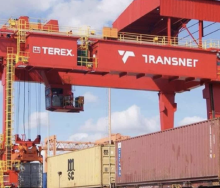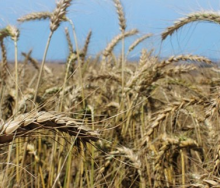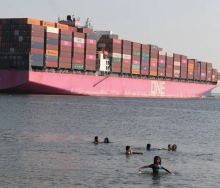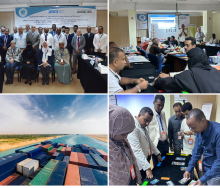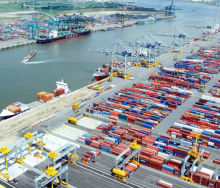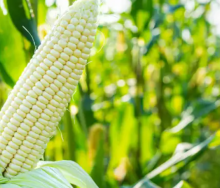More than a million animals are accidentally killed on roads worldwide each day, and the transport sector can play a vital role during National Transport Month in contributing to sustaining wildlife as natural habitat and human settlement merge.
The Endangered Wildlife Trust (EWT *) is driving awareness that, globally, transport infrastructure –mainly roads and railway – can negatively affect wildlife welfare as animals and transport collide at great cost to the trucker and environment.
In South Africa, Transport Month (October) is an annual feature on the calendar of the Department of Transport (DoT) and is one of the vehicles through which the Department engages directly with its stakeholders.
The Endangered Wildlife Trust’s Wildlife & Transport Programme (EWT-WTP) is championing the month as a platform to introduce stakeholders to some of its projects across the country, according to Wildlife and Transport Programme spokesperson, Wendy Collinson-Jonker.
“A vehicle collision with an animal on the road can lead to injury or mortality of the animal (ie, roadkill), or potential damage to vehicles or injury and/or death of the vehicle occupants. Preventing a collision often begins with researchers gathering information through recording locations of roadkill and then acting to reduce it,” she said.
WTP has identified wildlife-roadkill hotspots across the country, using data gathered on regional and national roads since 2010 to try to understand which species are most at risk and use this information to propose preventative measures to reduce roadkill. South Africa is the only country on the African continent to have such a focus.
It has developed social media sites, roadkill awareness days, promotional materials, and a cellphone app, “Roadwatch”, to get the transport sector involved in a citizen science programme and submit their roadkill sightings.
“Citizen science consists of a collaboration between managers and scientists from transportation and wildlife agencies, NGOs, colleges and universities, and the general community. It provides a large and robust pool of enthusiastic people interested in problem-solving and data collection.
“Consequently, the WTP’s Citizen Science Project has established the first national database for animal road mortalities, resulting in several scientific publications that have provided information to the country’s road agencies regarding future management decisions on mitigating the negative impacts of roads and provide a platform from which future studies can be designed,” said Collinson-Jonker.
In 2014, the WTP began a partnership with the N3 Toll Concession, which was followed in later years by Bakwena N1N14 Toll and TRAC N4. Its partnerships with the three South African toll concessionaire companies involves training the road patrollers to gather roadkill data.
“All this data worldwide goes into taking proactive action to inform the transport industry and public about the presence of animals. Please drivers, take heed and play a part,” she said.
In South Africa, drivers can report their roadkill sightings in several ways.
Roadkill data can be emailed to roads@ewt.org.za or submitted via EWT’s Road Watch app. Visit the iTunes or Play store to download this app. Further details can be found on the EWT website: www.ewt.org.za
What is required:
- Location of roadkill (GPS coordinates).
- Identification of species (as best as possible).
- Date and time it was seen.
- Notes on the habitat type at the section of the route where the roadkill was located (eg, riverine, grassland, rocky, wetland, etc.) would also be useful.
* The EWT will jointly host an international symposium in Scottburgh from October 31, running till November 4, during which time the topic of wildlife and transport will be placed front and centre.

